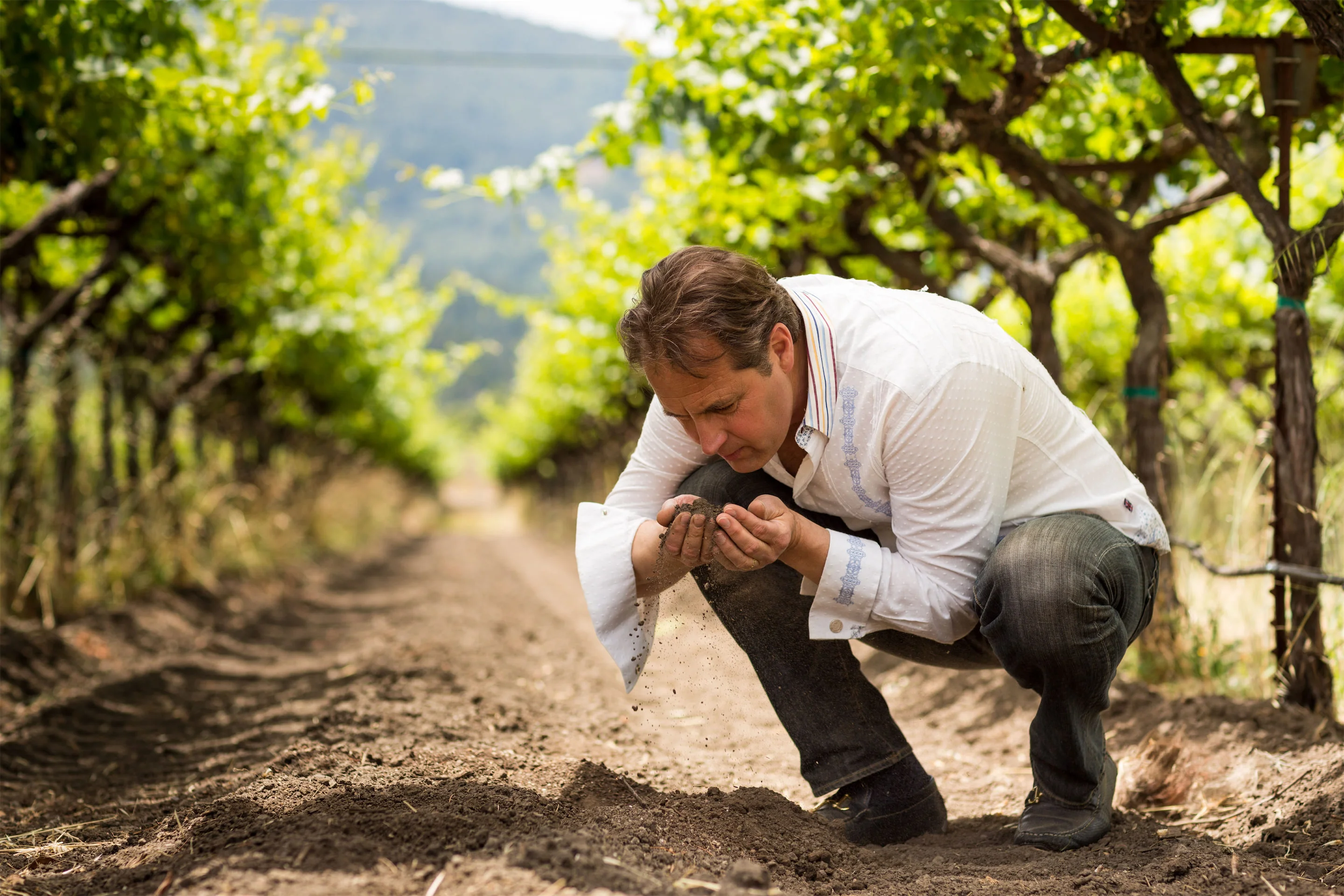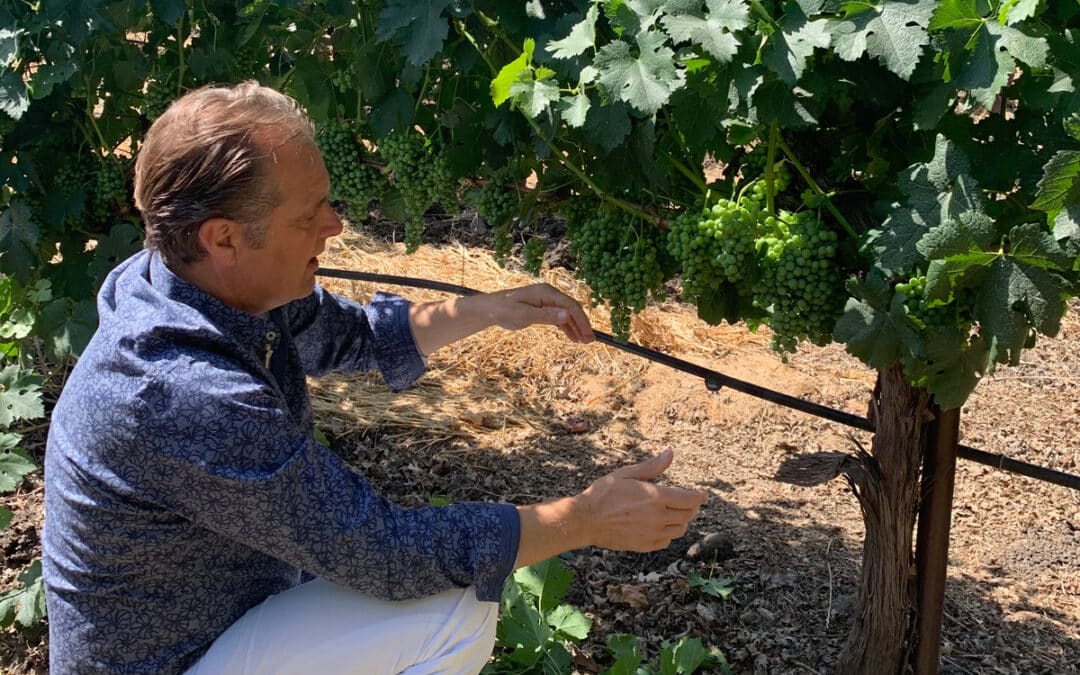Organic Farming: Back to the Basics
With Napa Valley as our backyard, the enviable variety of soils and microclimates provide our Napa vineyards with the best possible conditions to produce the highest quality fruit. As Miljenko “Mike” Grgich and Ivo Jeramaz say, “great wines begin in the vineyard.”
Growing high quality fruit is a crucial step in the winemaking process. Prior to the integration of modern technology in the wine industry, fine wines were created with minimalistic farming techniques, free of chemicals.

Why Farm Organically?
The advantages of organic farming range from benefits to human health, to protecting the environment and the welfare of natural ecosystems. Organically-farmed vineyards are more profitable in the long term – they can survive longer, providing high-quality fruit for decades. At Grgich Hills Estate, our vineyards have been certified organic since 2006, but our organic farming practices span more than 20 years prior to receiving official certification.
Ivo immigrated to the United States from Croatia in 1986 and began his winemaking career under the guidance of his great uncle, Mike Grgich. “In old days Croatia,” Ivo says, “there was no organic farming, it was just natural farming.” Withholding the use of chemicals allows the land to be unadulterated, therefore the grapes represent the true essence of the vineyard. Nearly all the herbicides and pesticides used in agriculture production contribute to environmental contamination, while only a small percentage of pesticides actually reach their targeted pests.
Healthy Microbes, Healthy Plants
“A healthy, hospitable environment for vines starts with soils that are alive with a diversity of bio-active microbes,” says Ivo. Microbes are extremely important for plant growth and the functioning of ecosystems. Soil microbes form symbiotic relationships with plants; the microbes protect plants from stress and feed them by converting nutrients in the soil. Without the microbes working in the soil, plants are unable to take the nutrition they need.
Soil health is a top priority in our approach to winegrowing and is one of the main focuses of both organic and regenerative farming. Regenerative farming also prioritizes no-till farming, composting and growing perennial crops. Studies have shows that crops grown through regenerative farming have more vitamins and minerals than comparable produce grown from traditional farming methods.
Benefits of Cover Crops
Often, plants growing around vineyards and between vineyard rows are not random growth – they’re planted with intention. These cover crops are planted with the purpose of promoting soil fertility and protecting natural ecosystems, rather than to be harvested. Microbes are alive and need nutrition to survive, which they receive from cover crops. Our vineyard team begins planting cover crops immediately after harvest, which flourish during fall and winter.
Types of Cover Crops Used in Our Vineyards
Rolling Mix: In 2019, we began using this mixture that contains winter barley and winter peas. Rolling the mixture breaks the stocks of the crop down near the soil, creating a layer of organic matter that protects the soil from excessive heat exposure. This promotes moisture and nutrient retention through the beginning of spring and summer.
Flower Mix: Our flower mix is propagated in vineyard spaces that are extra open in order to promote local bee activity, which creates a beneficial ecosystem. This mix contains an array of seeds, including mustard, vetch and phacelia (which acts as a bee forage).
Mowing Mix: This seed mixture contains winter lentils, winter peas, crimson clover, winter barley and winter oats. The tall and plentiful crop is mowed down to decompose, restoring nitrogen-rich organic matter into our soil beds for an invigorating start to the growing season ahead.
Throughout the years, we’ve seen farming take a turn toward more conventional practices. We are proud to continue farming our land sustainably and organically, ensuring the soil is healthy and viable for future generations. We’re proud to produce wines using winemaking practices that have been in our family for decades and that are a pure embodiment of our Napa Valley Vineyards.

